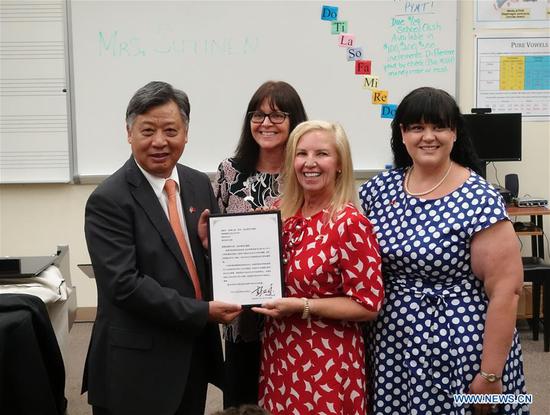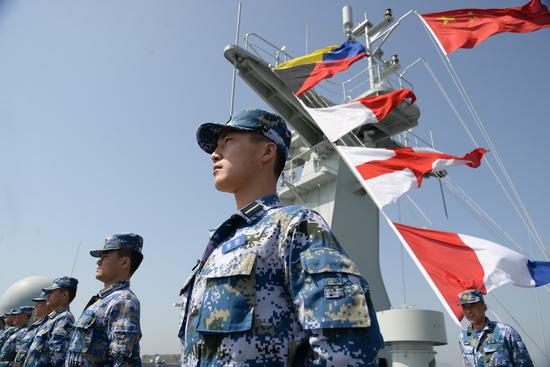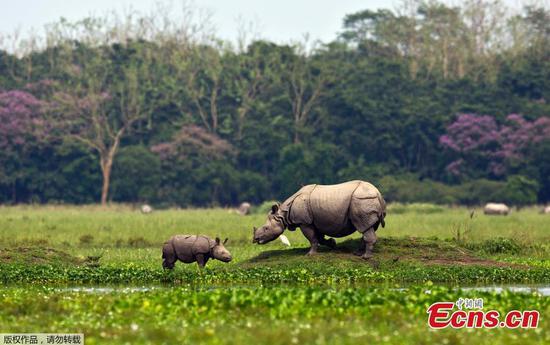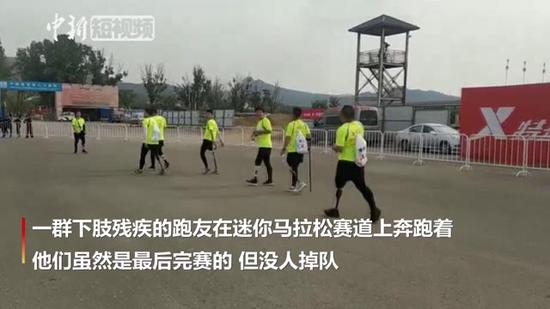In some developed countries, the economic system and social policies in favor of the rich have failed to distribute and redistribute gains of globalization equally, resulting in losses to a major chunk of working families and the middle class.
Finally, the active participation in the global division of labor and implementation of domestic reforms have given the developing countries an opportunity to catch up with the developed countries. As a result, the world economy has been converging.
As a result of convergence, a large share of the world's population has been lifted from absolute poverty. From 1981 to 2015, China contributed to the overall reduction of world poverty by 76.2 percent.
Globalization and its governance can be characterized by two conflicting trends.
First, inexorably influenced by populism, protectionism and inward-looking policies of some developed countries, notably the United States, globalization is encountering a headwind. Second, as the world economic balance changes, the emerging economies, or broadly speaking, the developing countries-which make up a large share of the world economy and have a much greater say in international affairs-are increasingly becoming an important force in rescuing globalization.
The latter trend makes multilateralism not only a value, but also a necessity. As long as widespread participation universally benefits the developing countries, globalization will not be reversed by the will of a single country or handful of politicians, even though they are considered powerful. In fact, the overwhelming part of the world expects a more inclusive globalization and relies on multilateralism for reshaping the governance systems of globalization.
Just as infrastructure and equipment used for producing private goods require revaluation, the World Bank, International Monetary Fund and WTO ought to update themselves.
China has submitted a proposal for WTO reform aimed at maintaining its core values and basic principles, which include openness, inclusiveness and nondiscrimination, and ensuring the development interests of the developing countries.
The experiences of China and other developing countries show that openness and cooperation promote economic growth of a country and convergence of the world economy, while free trade and economic globalization will act as a strong driver for sustainable development of the world economy.
Cai Fang is vice-president of the Chinese Academy of Social Sciences. The views do not necessarily reflect those of China Daily.


















































